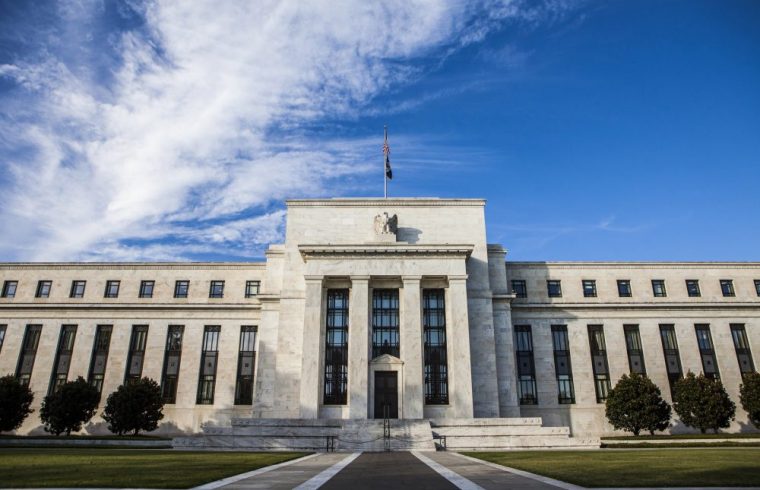With a second extraordinary market incursion by the Federal Reserve in about a decade, a Democratic Congressman wonders if the US isn’t creating systemic moral hazard.
Jim Himes is a Democratic Congressman from the State of Connecticut, and he is a member of the House Committee on Financial Services. Last week, the head of the Federal Reserve, Jerome Powell, testified by in front of that committee and in the Senate, in front of the Senate Committee on Banking, Housing and Urban Affairs, which is also known as the Senate Banking Committee.
He testified as part of his statutory requirement to testify in front of Congress twice a year on the “Semi-Annual Monetary Policy Report.” The written “Monetary Policy Report” can be found here.
Powell is grilled by every member- or at least every member who attends the hearing- of both committees. When Himes had his chance, he asked this question regarding a moral hazard.
“In my one decade plus or minus doing this, this is now the second time in which it has been necessary for the government, the Federal Reserve and fiscal policy, to step in in a truly massive way to bail out the economy. Ten years ago, it was the banks it was the auto industry. Now, we’re seeing the airline. The list goes on and on and on, and the worry I have, which relates to my first worry, is that actors in the private market- and I was one in the private sector- are going to decide that they take on a lot more risk, repurchase shares, dividend capital, because when the going gets tough and hazard be hit, we’ll be there to bail them out.
“I want to use my last I guess forty seconds or so to ask you to reflect on whether you think the activities of the last six months, and of the last ten years, have created significant moral hazard in our market system.”
Powell responded, “Certainly, it’s a concern and that’s why you know generally, we don’t look for ways to insert ourselves into markets when they’re functioning. This is a world historical event unlike any other. The situation that happened is one where we really felt like we had to come in with all our tools as aggressively as possible. I don’t regret those decision.”
A concern with Powell’s statement is that then Federal Reserve Chair Ben Bernanke was similarly as dramatic with regards to the 2008 financial crisis, “September and October of 2008 was the worst financial crisis in global history, including the Great Depression,” Mr. Bernanke is quoted as saying in a 2014 article in Forbes, “most important financial institutions in the United States, 12 were at risk of failure within a period of a week or two.” Here is part of a 2009 white paper by the Committee for a Responsible Budget.
“Financial markets and financial institutions in the United States and abroad have been under severe stress for nearly two years. In August 2007, short-term credit markets froze here and abroad when a major global bank announced it was no longer able to value widely held, complex financial instruments which had been originated in the United States. Many of these instruments were linked to the U.S. housing market, the deterioration of which triggered the crisis. Financial sector problems increasingly spilled over into economic activity and the economy went into recession in December 2007. The International Monetary Fund expects that global losses from U.S.- originated assets will amount to around $2.7 trillion and losses from all toxic assets will be around $4 trillion, 2007-2010.
“To address the crisis, governments and central banks have taken a series of forceful steps to stimulate their economies and to stabilize and fix the financial system. The Federal Reserve has taken some of the most aggressive and, arguably, crucial steps. To provide an unprecedented amount of liquidity to the financial system, the Federal Reserve has more than doubled the size of its balance sheet. This paper reviews the actions taken by the Federal Reserve and considers possible implications for the economic outlook and fiscal policy.”
If two events occur a decade apart, they are no longer extraordinary.
Moral hazard is defined as, “the risk that a party has not entered into a contract in good faith or has provided misleading information about its assets, liabilities, or credit capacity. In addition, moral hazard also may mean a party has an incentive to take unusual risks in a desperate attempt to earn a profit before the contract settles. Moral hazards can be present at any time two parties come into agreement with one another. Each party in a contract may have the opportunity to gain from acting contrary to the principles laid out by the agreement,” according to the website Investopedia.
Another way to say it, is that gains are capitalized while losses are socialized.









